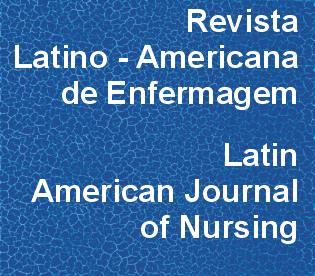Risk factors for infant developmental problems
DOI:
https://doi.org/10.1590/S0104-11692007000700019Keywords:
child development, risk, triage, family health programAbstract
This descriptive-correlational study aimed to detect risks for child developmental problems in the first four years of age, to identify the protective resources in the familiar environment, and to verify the best predictive variables of the development at risk. The non-clinical sample was composed by 120 children registered in a Family Health Program. The assessment instruments for global development, expressive language and familiar environment were used. The logistic regression analysis indicated that the lower the father's educational level, the higher the risk for developmental problems. Both the history of low nutritional state at six months of age and the psychosocial risk in the family environment increased the chances of having expressive language problems. It is concluded that screening tests of risk for developmental problems and the analysis of the psychosocial factors in the familiar context should be considered as preventive intervention procedure in the Family Health Programs.Downloads
Download data is not yet available.
Downloads
Published
2007-10-01
Issue
Section
Original Articles
License
RLAE’s authorship concept is based on the substantial contribution by each of the individuals listed as authors, mainly in terms of conceiving and planning the research project, collecting or analyzing and interpreting data, writing and critical review. Indication of authors’ names under the article title is limited to six. If more, authors are listed on the online submission form under Acknowledgements. The possibility of including more than six authors will only be examined on multicenter studies, considering the explanations presented by the authors.Including names of authors whose contribution does not fit into the above criteria cannot be justified. Those names can be included in the Acknowledgements section.
Authors are fully responsible for the concepts disseminated in their manuscripts, which do not necessarily reflect the editors’ and editorial board’s opinion.
How to Cite
Risk factors for infant developmental problems. (2007). Revista Latino-Americana De Enfermagem, 15(spe), 837-842. https://doi.org/10.1590/S0104-11692007000700019



